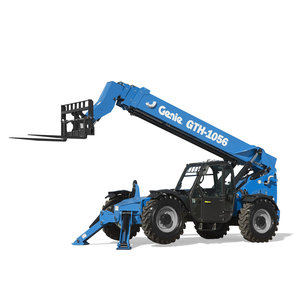The advantages of forklift trucks are numerous and much exceed the disadvantages of these useful machines. Furthermore, forklift trucks provide convenience, increase productivity, and they are dependable. We will review the general benefits of forklift trucks and how they may help you run your workplace operations more smoothly and efficiently.
FORKLIFT TYPES
One of the other significant advantages of forklift trucks is the variety of models offered. The following are the three primary types of forklifts, the introduction of these three types of forklifts has resulted in a significant rise in warehouse efficiencies, regardless of how heavy or difficult the cargo is to carry.
- Internal combustion forklifts – These forklifts are typically used outside since they are powered by gasoline, diesel, compressed natural gas, or propane, which would be too dangerous for people if used within.
- Electric forklifts – This type of forklift is used indoors. They are battery-powered and are less expensive to run than gas forklifts. Not to mention that they are much quieter when in use, resulting in less noise pollution in the warehouse.
- Manual forklifts – These are non-motorized pieces of equipment that are less versatile than the other two types of forklifts. They can barely raise goods a few inches off the ground and have a limited weight capacity. Despite being less expensive, they are not as suitable for warehousing as electric or gas-powered forklifts.
ADVANTAGES OF FORKLIFTS
- SAFETY – Improved safety is the first perk on our list of forklift advantages. Many companies and warehouses used cables and pulleys to transport huge crates and other weighted goods before forklifts were invented. This was, however, an extremely dangerous method because the loads could quickly produce too much tension in the cabling (causing it to snap) and, if not properly anchored, might even land on personnel below. As a result, the advent of the forklift has resulted in a significant rise in worker safety.
- LOAD CAPACITY AND MANEUVERABILITY – Forklifts are one of the tiniest pieces of drivable gear on the market today, making them ideal for warehousing operations. They’re small enough to fit in tight spaces like racking isles, and they’re easy to maneuver in different directions. It’s also worth noting that, depending on the forklift, many can carry loads up to 35,000 pounds, making them excellent for transporting enormous pallets around the warehouse.
- HUMAN REQUIREMENTS HAVE BEEN REDUCED – One of the most significant advantages of purchasing a useful piece of machinery such as a forklift is that it eliminates the need for various human activities in order to run it. It could have taken three or more persons to properly carry products off a cable back in the day, whereas today, goods can be transported by a single person in a forklift. This can result in one of two outcomes. It could either reduce the amount of labor required to man the vehicle, lowering business labor costs, or it could advise your employees to perform other important business tasks that require human interaction, such as staff training or other physical tasks such as transporting recycling into the facility.
- PRODUCTIVITY IMPROVEMENT – Forklifts, as previously stated, can reduce the amount of human labor required to transfer items. As a result, as the demand for human labor declines, workplace productivity rises. It’s simple because you’re utilizing fewer resources to achieve the same amount of production.
- EQUIPMENT FOR RENT – Another advantageous feature of forklift trucks is that they may be rented. If you’re an individual or a business owner who can’t afford to buy a forklift entirely, you’ll be able to locate fairly priced rentals or financing alternatives that will allow you to get the work done without going into significant debt.










